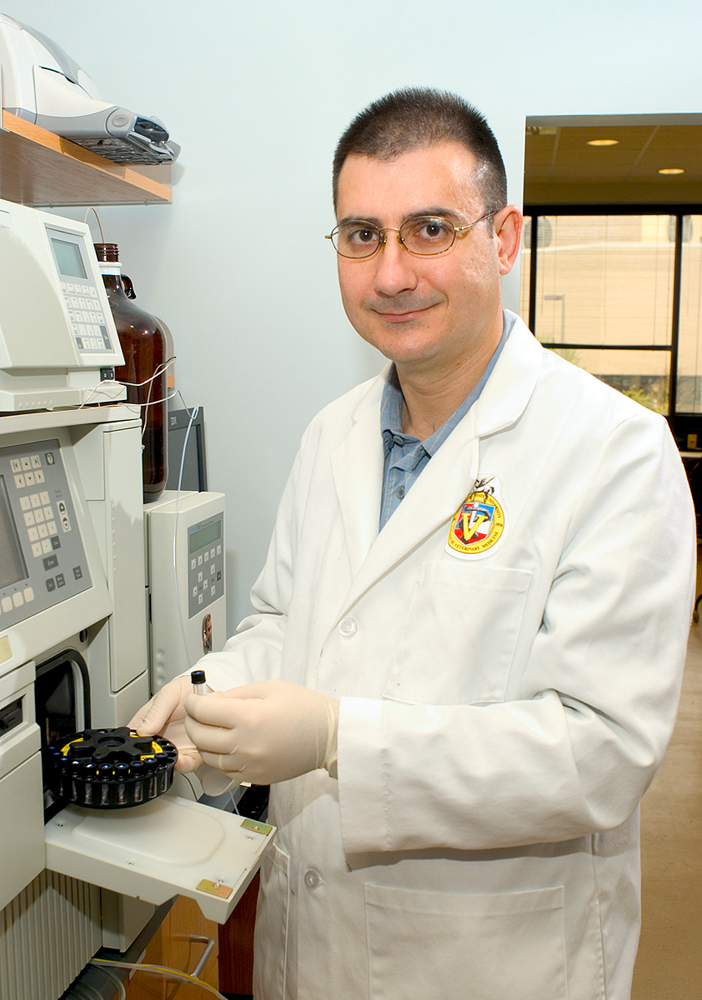Contact: Maridith Geuder

Nikolay M. Filipov
With a $100,000 Early Career Award from the American Chemical Council, Mississippi State toxicologist Nikolay M. Filipov will continue his research on the ways certain environmental chemicals affect nervous systems of the elderly.
An assistant professor at the university's College of Veterinary Medicine, Filipov is the first Mississippi researcher to receive the annual honor.
The Arlington, Va.-based ACC represents leading U.S. companies engaged in the business of chemistry. The award is made through the Society of Toxicology, an organization based in Reston, Va.
"The award is provided through the council to study the potentially adverse effects of chemicals of interest to the public," Filipov said. Selections follow a rigorous peer-review process and are given only to faculty members at research universities who have held doctorates for less than five years, he added.
A graduate of the Higher Institute of Zootechnics and Veterinary Medicine in his native Bulgaria, Filipov joined the faculty of MSU's Center for Environmental Health Sciences in 2001. The center is an MSU veterinary college unit.
Filipov, who also holds master's and doctoral degrees from the University of Georgia, currently is using rodent models to test the impact of age on susceptibility to certain chemicals. Funded by the National Institutes of Health, several of his projects focus on specific categories of pesticides and their role in the development of Parkinson's disease.
He said the ACC award will help continue this work.
"Parkinson's often is considered a disease of the elderly," Filipov explained, noting that more than 1 percent of the population 65 and older has the condition. "This research in particular will look, within the context of age, at the impact of relevant chemicals on brain structures affected by Parkinson's."
Age-dependent susceptibility to environmental chemicals "is a relatively new area of investigation," said Dr. Jim Bus. A Dow Chemical administrator, Bus co-chairs ACC's multi-million-dollar initiative to increase scientific knowledge about the impact of chemicals on humans, wildlife and the environment.
"More information is needed to advance the scientific basis for making risk-informed decisions regarding potential neurological effects of chemicals in aging populations," Bus said.
Headed by Giles Distinguished Professor Janice E. Chambers, MSU's Center for Environmental Health Sciences has developed a major research program in pesticide toxicology. In 2002, the unit was honored by the National Institutes of Health with a grant of nearly $9 million to develop a major thrust in biomedical research excellence at the Starkville land-grant institution.